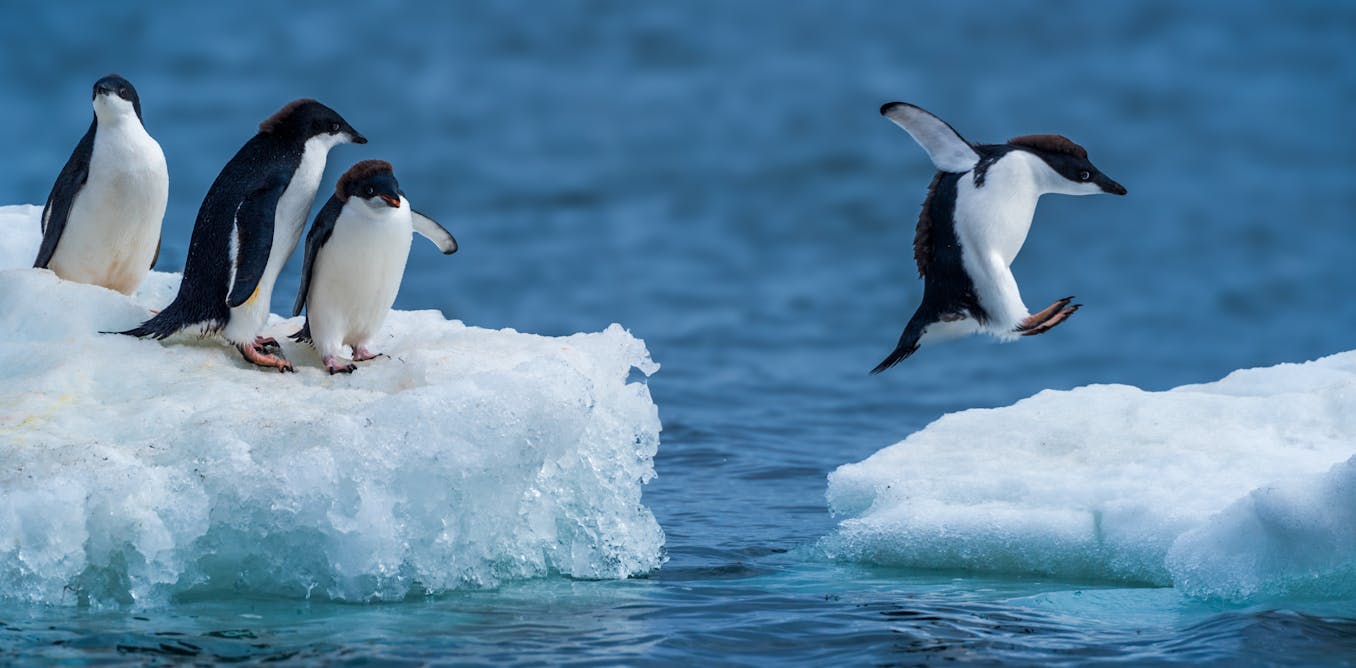The ocean around Antarctica is rapidly getting saltier at the same time as sea ice is retreating at a record pace. Since 2015, the frozen continent has lost sea ice similar to the size of Greenland. That ice hasn’t returned, marking the largest global environmental change during the past decade.
This finding caught us off guard – melting ice typically makes the ocean fresher. But new satellite data shows the opposite is happening, and that’s a big problem. Saltier water at the ocean surface behaves differently than fresher seawater by drawing up heat from the deep ocean and making it harder for sea ice to regrow.
The loss of Antarctic sea ice has global consequences. Less sea ice means less habitat for penguins and other ice-dwelling species. More of the heat stored in the ocean is released into the atmosphere when ice melts, increasing the number and intensity of storms and accelerating global warming. This brings heatwaves on land and melts even more of the Antarctic ice sheet, which raises sea levels globally.
Unexpected? Is this sarcasm?
The unexpected part is the increased surface salinity. Previously it was thought that the fresh water melt would stay on top of the denser, saltier deep water trapping some heat and salt below and allowing some refreezing slowing the overall melt, but still melting. They’re finding unexpected vertical mixing bringing up saltier water from the deep, causing more melting, causing more mixing; a feedback loop.
The article doesn’t really explain why this is happening, only what is happening. It does link to a paper but I’m still trying to parse it. I think I need something a little dumbed down from the paper in plain language but with a lot more info than the original article to understand it.
It follows the normal pattern where everytime we learn more about climate change we find out it’s even worse than we thought.
Plain language.
We’re fucked!
Good enough?
May be?
Gotta soften that blow so we can’t truly blame the ultra wealthy’s pollution companies.
Nuclear war may be bad for life on Earth




